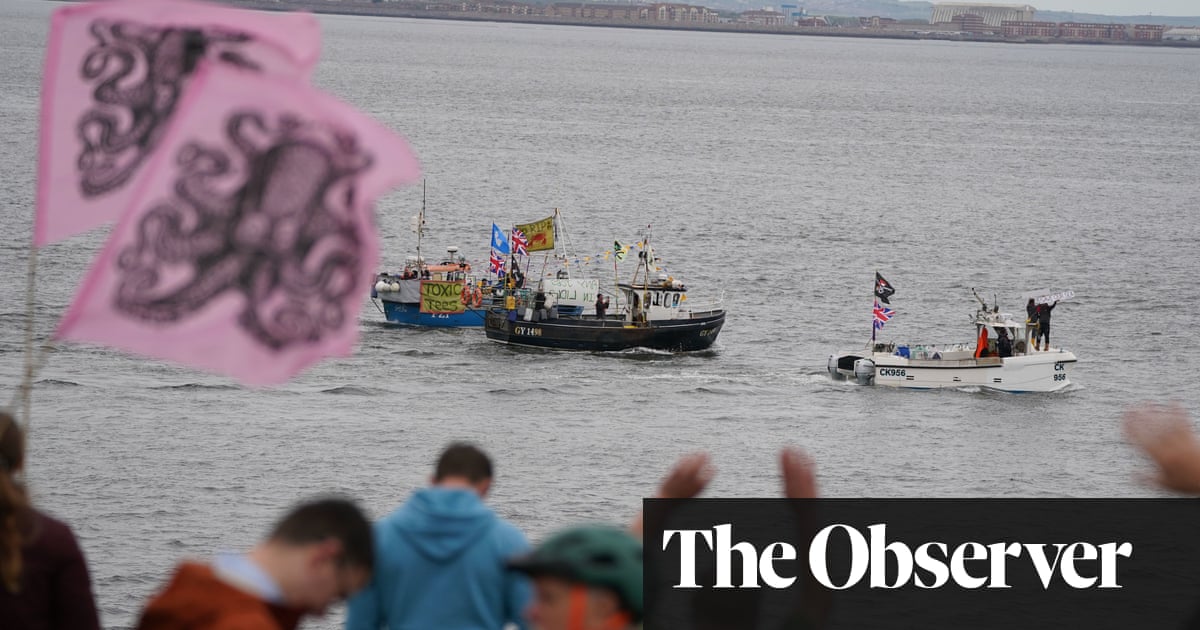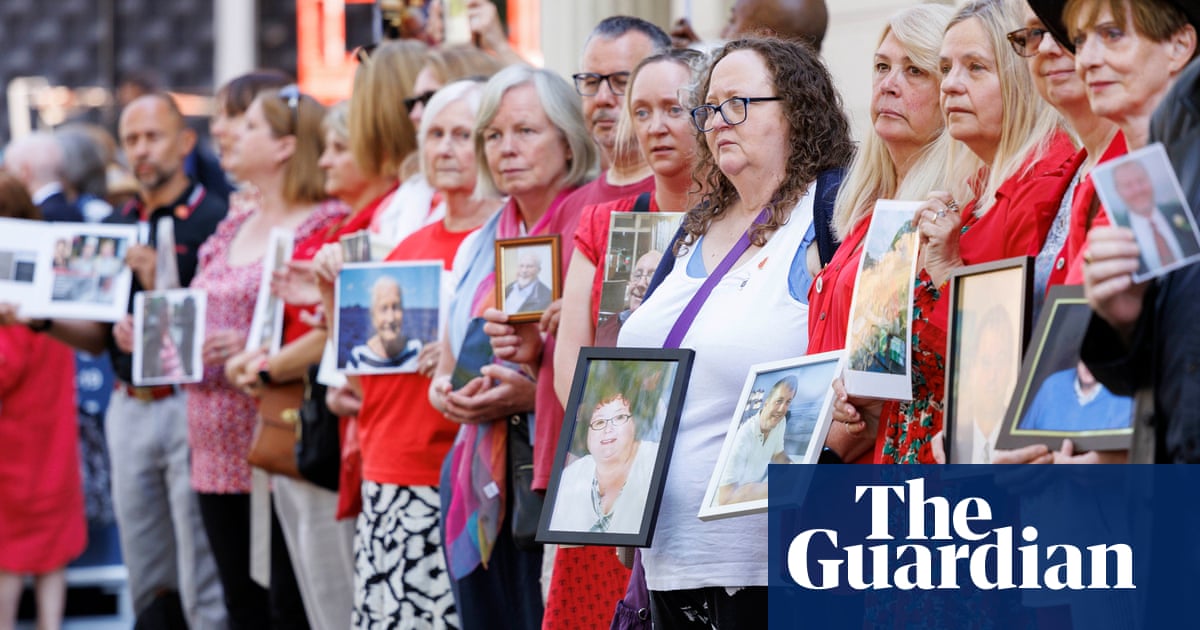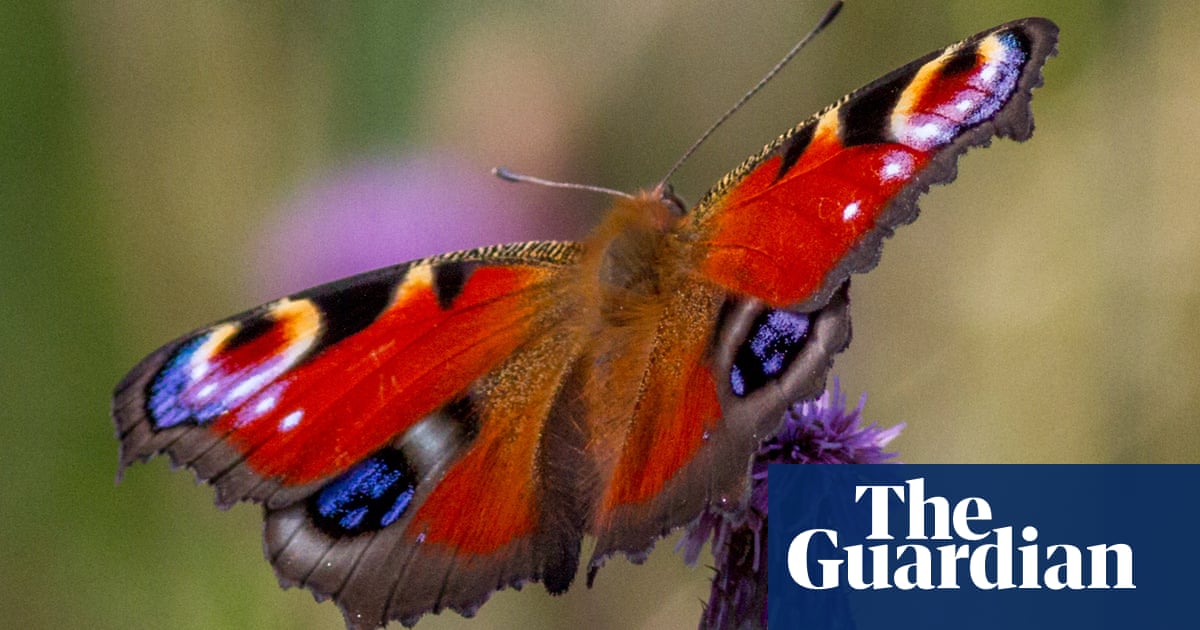
Scientists who led research into the mystery deaths of thousands of crabs and lobsters along England’s north-east coast say they have been asked no questions by the panel investigating the disaster.
The expert review panel has also been excluded from examining government processes as part of its inquiry, despite widespread scrutiny of the official explanation for the deaths, the Observer understands.
The revelations raise questions about potential limitations of a forthcoming report into the die-offs, which is expected to be sent to ministers this week.
An initial government investigation said the crustacean deaths in 2021 were most likely caused by a naturally-occurring algal bloom, and effectively dismissed suggestions that human activity had played a part.
The finding by Department for Environment, Food and Rural Affairs (Defra) scientists was challenged by fishers and campaigners who fear dredging in the River Tees is responsible. They believe dredging may have released a toxic chemical called pyridine, which was used in industry on Teesside and was found in high levels in the dead crabs.
The government says it has found no evidence for the theory, but some are concerned it has been prematurely dismissed. If a link to dredging is confirmed, there could be significant ramifications for plans to open a freeport on Teesside, a project seen as key to the Conservatives’ post-Brexit levelling-up agenda.
While the dredging around the time of the die-offs was not directly linked to the freeport, preparation for the development involves material being dredged from areas near sediment that campaigners believe caused the die-offs.
Documents released to OpenDemocracy last year show that government scientists at one point believed dredging may have been a factor, with a November 2021 Environment Agency presentation saying it was “unlikely that a ‘natural event’ caused the deaths” and that dredging was the “most serious line of enquiry to be investigated”.
The current investigation – by a panel of external experts convened by Sir Patrick Vallance, the government’s chief scientific adviser – came after MPs ordered Defra to reopen inquiries into the die-offs after academic research cast doubt on the official algal bloom theory.
Scientists from Newcastle, York, Hull and Durham universities had found last year that pyridine was highly toxic to crabs. The work, commissioned by the North East Fishing Collective after a crowdfunding appeal, suggests pyridine could have killed thousands of crabs in the region.
Dr Gary Caldwell, senior lecturer in marine biology at Newcastle University, said he and his colleagues were invited to upload data and research findings to be considered by the review panel, but had heard nothing since, despite the report being due this month. “My expectation was that I would speak to the panel or they would call me to clarify points,” he said. “But there has been no line of communication whatsoever. Everything goes through the office of the [government’s] chief scientific adviser.”
Transparency concerns have also been raised after Defra declined to publish names of the panel members or the review’s terms of reference.
Geraint Davies, a Labour MP and member of the Environment Food and Rural Affairs Committee, which ordered the review, said: “The idea that they should choose their own judge and jury and that panel should be both anonymous and meeting in secret, with secret terms of reference, is completely unacceptable.”
He said the fact that the panel would not consider “government processes” raised questions about the investigation’s limitations. While the panel was not being asked to rule on “who said what” before the original Defra report was published, any report must explain “how they came to the conclusion of algae bloom and dismissed in the first instance any other cause”.
Davies added that evidence from Dr Caldwell and other experts “needs to be robustly challenged in order to either support their conclusion or otherwise”. “If that critical scientific debate isn’t happening, then we can’t have faith in the [review panel’s] conclusions.”
Defra said it knew people wanted a “thorough assessment into this issue” and that an independent panel of “external experts” from “over 10 leading marine science organisations” was examining all the available evidence, including considering the potential roles of algal bloom, pyridine and dredging.
Details of the panel members and the review’s terms of reference will be published with the report, a spokesperson said, but are being kept secret now to avoid “influence from interested parties”.
The agency has defended its initial investigation as comprehensive and robust, but said it was a “complex area”.
Campaigners are calling for compensation for fishers impacted by the die-offs and for future dredging to be paused until the cause is established.












